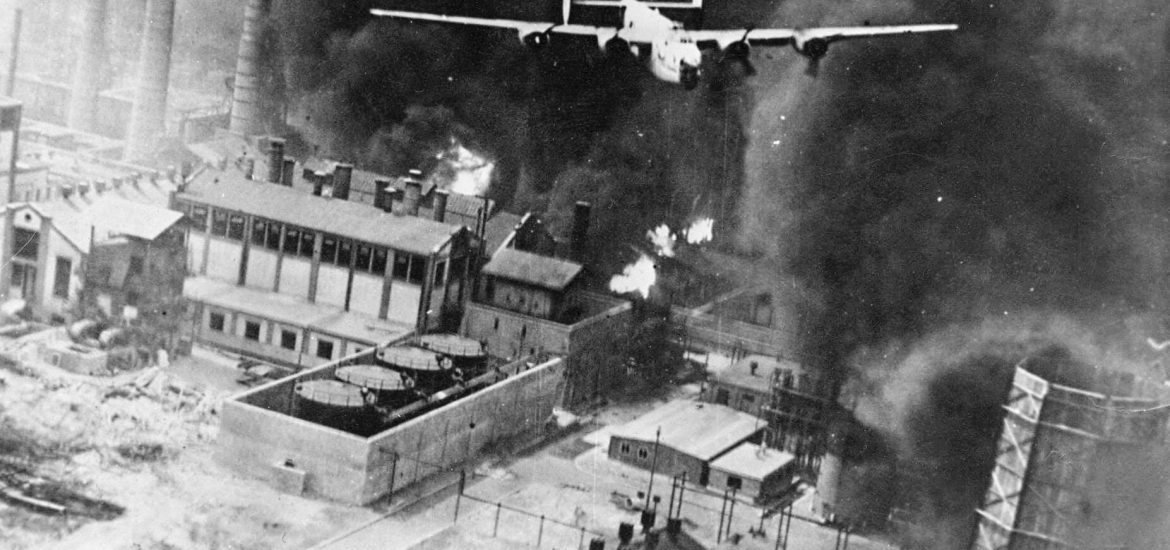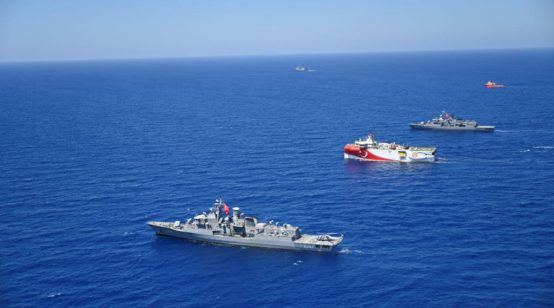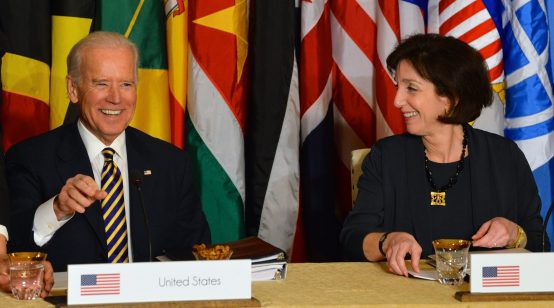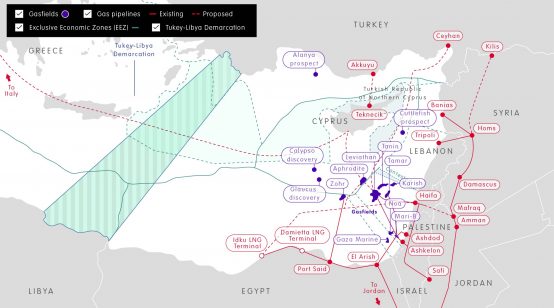
For the past two hundred years, fossil fuel resources have bestowed global power. Britain became the first global hegemon in the nineteenth century, thanks to its first-mover advantage in industrialization and its peerless navy, both of which harnessed high-quality coal, of which Britain the world’s largest supply. The United States similarly leveraged its own prodigious oil resources in the twentieth century into dollar primacy, industrial strength, and military power, and then embraced global hegemony. Sandwiched between these epochs, Britain and Germany fought two world wars for global hegemony but neither side had enough oil resources to win.
 This is the subject of Anand Toprani’s excellent new history, Oil and the Great Powers: Britain and Germany, 1914 to 1945 (Oxford University Press, 2019), winner of the 2020 Richard W. Leopold Prize from the Organization of American Historians, which is awarded every two years. The book narrates the two-and-a-half decade attempts by both powers to be independent in oil, which ultimately depended on acquiring access to new foreign sources.
This is the subject of Anand Toprani’s excellent new history, Oil and the Great Powers: Britain and Germany, 1914 to 1945 (Oxford University Press, 2019), winner of the 2020 Richard W. Leopold Prize from the Organization of American Historians, which is awarded every two years. The book narrates the two-and-a-half decade attempts by both powers to be independent in oil, which ultimately depended on acquiring access to new foreign sources.
Toprani, an Associate Professor of Strategy and Policy at the US Naval War College in Rhode Island, argues that the powers erred by seeking independence in oil in the first place. They might have attained energy security, however, if they had chosen to be oil interdependent. “Opting for energy security as part of a strategy of interdependence could have provided Britain and Germany with ample supplies of energy and perhaps guaranteed their economic prosperity, but only at the cost of their political freedom. This was unacceptable to elites in either country” (17-8).
Geography and the pivotal year of 1935
Indebted to the Americans and forced to pay for much of its oil in dollars, Britain started the interwar era in a precarious position. Its large bet on the Middle East, primarily in Iran and Iraq, was not unwarranted: prodigious supplies came online from both countries. Yet Britain could not count on Middle East supplies to Europe in wartime given both the shortage of tankers and long journey required. Resource nationalism, meanwhile, imperiled its most readily available, non-U.S. source of oil in the Western Hemisphere: Mexico.
The story’s definitive turning point—and one I didn’t see it coming—came in 1935, when Germany abrogated the Versailles Treaty and British-Italian relations fractured after the latter invaded Abyssinia. “Germany and Italy, although inferior to Britain at sea, could sever access to the Middle East through the Mediterranean—through which 34 percent of Britain’s oil imports traveled in 1934—and possibly even invade the region” (97). Britain’s lines of communication to the Middle East were now threatened. It did not have enough tankers to avoid the Suez Canal and bring the oil around Africa. “Britain’s failure had less to do with geology than geography,” writes Toprani, because the British “based their oil strategy on the premise that there would not be any threat to their supply lines” (119).
“Seldom,” Toprani goes on, “has a strategy promised so much yet yielded so little as Britain’s efforts in the Middle East following World War I” (129). Britain suffered a further blow in 1938, when Mexico nationalized its oil industry, where British firms were dominant (108-113). Thus, on the eve of war in 1939, Britain found itself in a similar position as in 1914: largely dependent on the United States for oil supplies.
Germany’s search for self-sufficiency
The story of Germany is thrilling since the stakes and gambles on oil were so dramatic. Without a dominant navy and already a continental power, Germany looked to new imports from nearby countries – Romania in 1938 and the Soviet Union in 1939 – and to grow its synthetic fuel industry, to increase supplies and address foreign currency balances (177).
Germany’s attempts to thread a tight needle on oil foundered on two mistakes. The first was Hitler’s impatience. With Italy’s resurgence and the victory of fascist forces in Spain, the German leader saw the geopolitical chessboard titling in his favor and pushed his plans of conquest earlier than Germany was logistically ready, at least in oil. Germany’s second mistake was not planning for how to supply Europe after it conquered it (199). Nevertheless, partly through luck but also through adaptation, Germany managed to supply its armed forces ably until the spring of 1941.
By the summer of 1941, however, the situation was dire. It had established Continental Oil in March 1941 to try to free Germany from the control of the Anglo-American companies in Romania, but this half-measure, along with increased investments in synthetic fields, would not be enough. Hitler thus invaded the Soviet Union with Operation Barbarossa, something he had begun planning in July 1940. After securing the oil fields in Baku, Germany’s strategy was to move into the Mediterranean and Middle East, severing Allied access to Soviet and Middle East oil and opening it up for the Germans (231-37). The operation’s failure, of course, changed the war and dashed Germany’s search for self-sufficiency in oil.
Energy transitions and world power
Britain’s quest for oil independence is somewhat forgivable, given its past independence in coal and the growth of the oil markets in the 1920s and 1930s. Germany, on the other hand, started from behind and tried to catch up by developing its synthetic fuel industry and cultivating new land-based sources linked by rail and barge, namely Romania and the Soviet Union. For both powers, however, the reality of logistics, planning, prices in currencies they didn’t control, sources located in lands across oceans, and geopolitics made oil independence a pipe dream.
Control over energy resources shapes geopolitics today. All powers still depend on oil for the military transportation sector, but the energy transition demands cleaner fuels, and some fear that China’s dominance over the minerals required to construct renewable energy technologies, batteries most notably, could be a future flashpoint. Oil and the Great Powers reminds us both that transitions in energy sources change geopolitics and that these shifts take decades to occur. There are no quick solutions, and energy independence remains as elusive today as it did for Britain and Germany. Interdependence remains the only path towards energy security.
This article is an abridged version of a review that was originally published by the Journal of Energy History/Revue d’Histoire de l’Energie, an online academic journal.
Photo: Allied bombers attack an oil refinery in Romania during World War II; credit: Wikimedia Commons.





